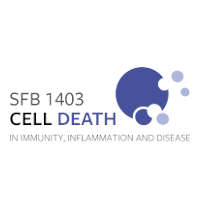Discovery of dual-active ethionamide boosters inhibiting the Mycobacteriumtuberculosis ESX-1 secretion system.
Abstract
Drug-resistant Mycobacterium tuberculosis (Mtb) remains a major public health concern requiring complementary approaches to standard anti-tuberculous regimens. Anti-virulence molecules or compounds that enhance the activity of antimicrobial prodrugs are promising alternatives to conventional antibiotics. Exploiting host cell-based drug discovery, we identified an oxadiazole compound (S3) that blocks the ESX-1 secretion system, a major virulence factor of Mtb. S3-treated mycobacteria showed impaired intracellular growth and a reduced ability to lyse macrophages. RNA sequencing experiments of drug-exposed bacteria revealed strong upregulation of a distinct set of genes including ethA, encoding a monooxygenase activating the anti-tuberculous prodrug ethionamide. Accordingly, we found a strong ethionamide boosting effect in S3-treated Mtb. Extensive structure-activity relationship experiments revealed that anti-virulence and ethionamide-boosting activity can be uncoupled by chemical modification of the primary hit molecule. To conclude, this series of dual-active oxadiazole compounds targets Mtb via two distinct mechanisms of action.
Read more at Cell Chem Biol. S2451-9456(23)00436-1
